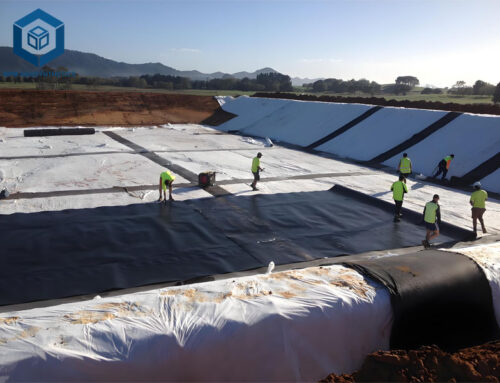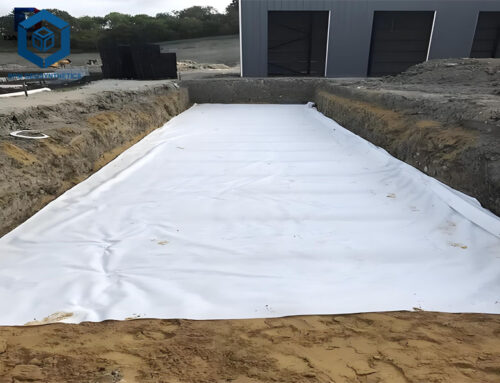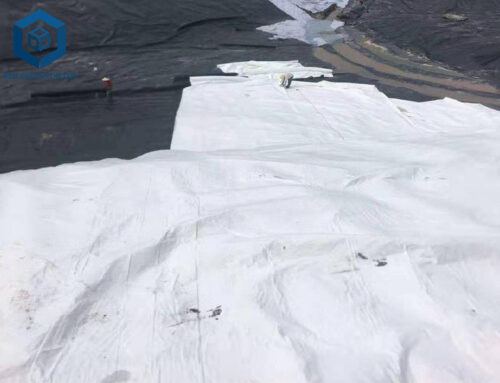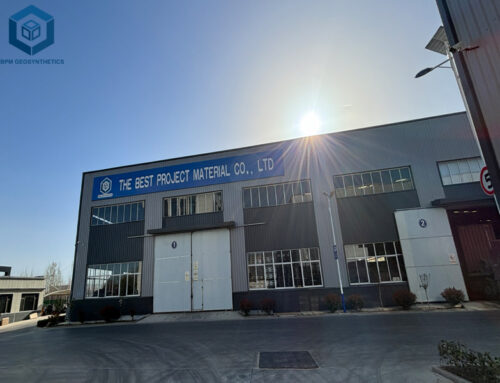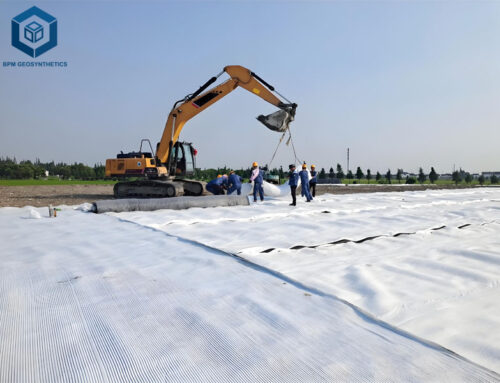Geotextile fabric has become a crucial material in modern civil engineering, particularly for constructing driveways. Geotextile Fabric For Driveway – Its advantages are manifold, making it an essential component for ensuring the longevity and performance of driveway projects. One leading geotextile manufacturer, BPM Geotextile, stands out for producing high-quality geotextile fabrics that offer significant benefits in various applications.
1. What Is Geotextile Fabric For Driveway?
Geotextile fabric for driveways is a type of geotextile material that is used to reinforce and stabilize the base layer of a driveway. It is designed to provide additional strength and durability to the driveway surface,reducing the risk of cracking settling and other types of damage. Geotextile fabric for driveways is typically made from synthetic fibers or natural fibers that are bonded together in a random manner. It can be installed during the construction of a new driveway or used to repair an existing driveway. The fabric helps to distribute traffic loads more evenly across the surface of the driveway, extending its lifespan and improving its performance.
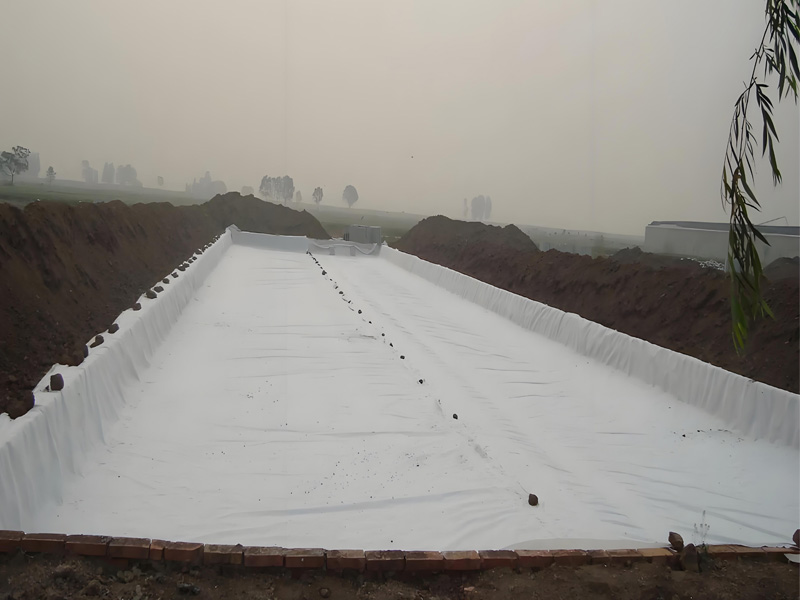
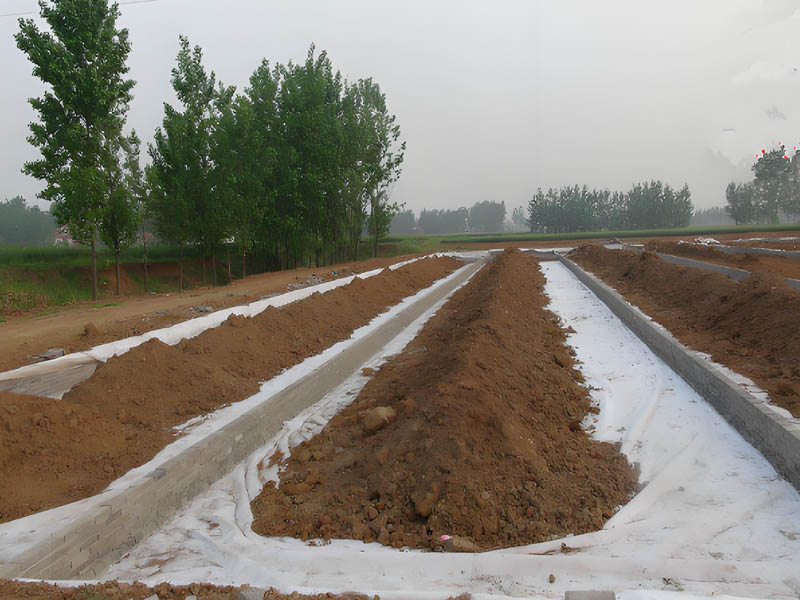
2. What Are Applications Of Geotextile Fabric For Driveway?
Geotextile fabric for driveways has several applications that contribute to the overall strength and durability of the driveway surface. Here are some key applications:
- Base Reinforcement: Geotextile fabric is used to reinforce the base layer of a driveway, providing additional support and stability.
- Crack Prevention: It helps reduce the risk of cracking by distributing traffic loads more evenly across the surface.
- Settlement Control: The fabric minimizes soil settlement and movement, ensuring a smoother and more stable driveway.
- Drainage Improvement: Geotextile fabric allows for better water drainage, preventing water accumulation and related damage.
- Erosion Control: It helps prevent soil erosion from heavy rain or irrigation, maintaining the integrity of the driveway foundation.
- Separation Layer: Acts as a separation layer between different materials, such as gravel and soil, preventing mixing and maintaining distinct layers.
- Load Distribution: Evenly distributes vehicle loads across the driveway surface, reducing stress on specific areas and prolonging the driveway’s lifespan.
- Repair Assistance: Can be used in repairing existing driveways, adding strength and stability to deteriorated sections.
3. What Are Advantages of Geotextile Fabric For Driveway?
Geotextile fabric is popular for driveway projects due to its advantages, including enhanced stability and better load distribution.
3.1 Improved Durability
Geotextile fabric helps to extend the lifespan of the driveway by providing a stable base that can withstand heavy vehicle traffic and other stressors. This reduces the need for frequent repairs and maintenance saving time and money in the long run.
3.2 Better Drainage
The permeable nature of geotextile fabric allows water to pass through while preventing fine particles from clogging the drainage system. This ensures proper drainage and prevents water accumulation underneath the driveway surface which can lead to cracking heaving and other types of damage.
3.3 Enhanced Stability
Geotextile fabric adds strength and stability to the driveway by distributing loads more evenly across the surface. This reduces the risk of cracking rutting and other types of damage caused by heavy vehicle traffic.
3.4 Reduced Maintenance
Geotextile fabric acts as a barrier that prevents weeds from growing through the driveway surface reducing maintenance requirements and improving the overall appearance of the driveway.
3.5 Environmentally Friendly
Geotextile fabric is made from synthetic fibers or natural fibers that are bonded together in a random manner making it an environmentally friendly option for driveway construction. It does not produce harmful emissions or pollutants during its production or use.
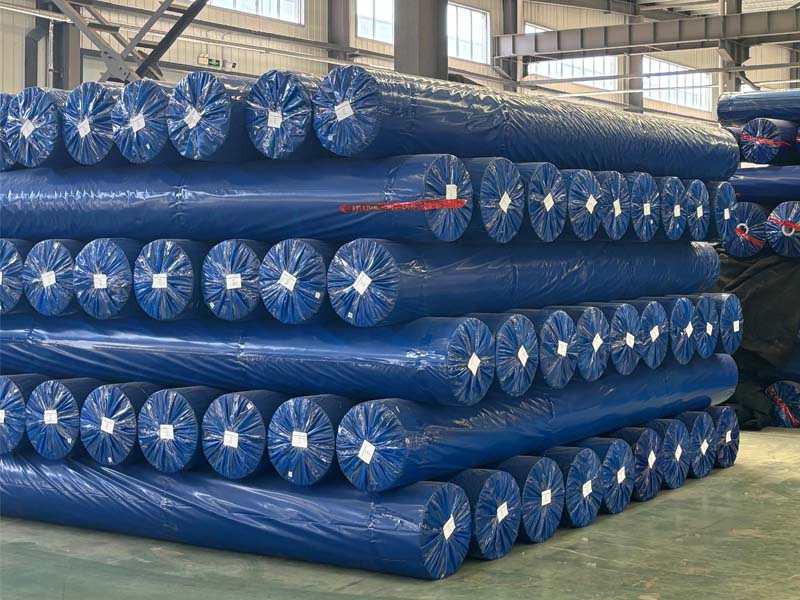
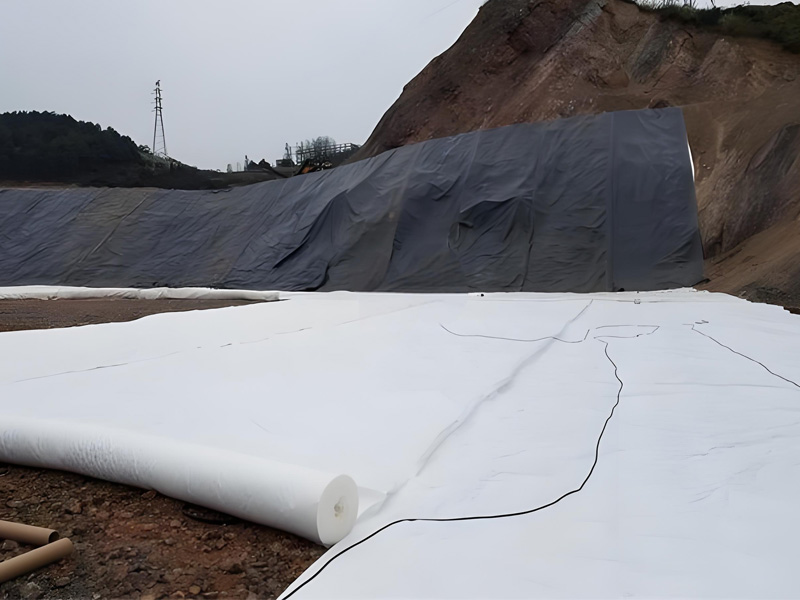
4. How To Choose The Right Geotextile Fabric For Driveway?
Choosing the right geotextile fabric for a driveway involves several considerations to ensure optimal performance, durability, and cost-effectiveness. Here are the key factors to consider:
- Material Type: Geotextiles can be made from synthetic fibers (like polypropylene or polyester) or natural fibers. Synthetic options generally offer better durability and resistance to environmental factors.
- Permeability: Ensure the geotextile has appropriate permeability to allow water to pass through while filtering out fine particles. This helps prevent water accumulation and soil erosion.
- Strength and Durability: Consider the tensile strength and tear resistance of the geotextile to withstand heavy vehicle traffic and other stressors. Higher tensile strength is crucial for areas with significant loads.
- Thickness and Weight: The thickness and weight of the fabric impact its ability to separate and stabilize different layers. Thicker and heavier fabrics provide better stability but may be more expensive.
- UV Resistance: For driveways exposed to sunlight, choose a geotextile with UV stabilization to prevent degradation from ultraviolet rays over time.
- Compatibility: Ensure the geotextile is compatible with the materials used in your driveway construction. It should not react chemically with the asphalt, concrete, or aggregates.
- Manufacturer Specifications: Always refer to the manufacturer’s specifications and guidelines for recommended applications and installation procedures.
5. Summary
In conclusion, geotextile fabric offers a myriad of advantages for driveway construction. Its durability and strength significantly extend the lifespan of the driveway, reducing the need for frequent repairs. The fabric’s permeability ensures proper drainage, preventing water accumulation and associated damage like cracking and heaving. Additionally, it enhances stability by evenly distributing loads, thereby minimizing the risk of surface damage from heavy traffic. Geotextile fabric also acts as an effective barrier against weed growth, lowering maintenance requirements and improving aesthetics. Moreover, its environmentally friendly composition, made from natural or synthetic fibers, ensures that it does not produce harmful emissions or pollutants during production or use. These benefits collectively make geotextile fabric a highly valuable material for enhancing driveway performance and longevity.If you have any further questions, please feel free to contact us.

